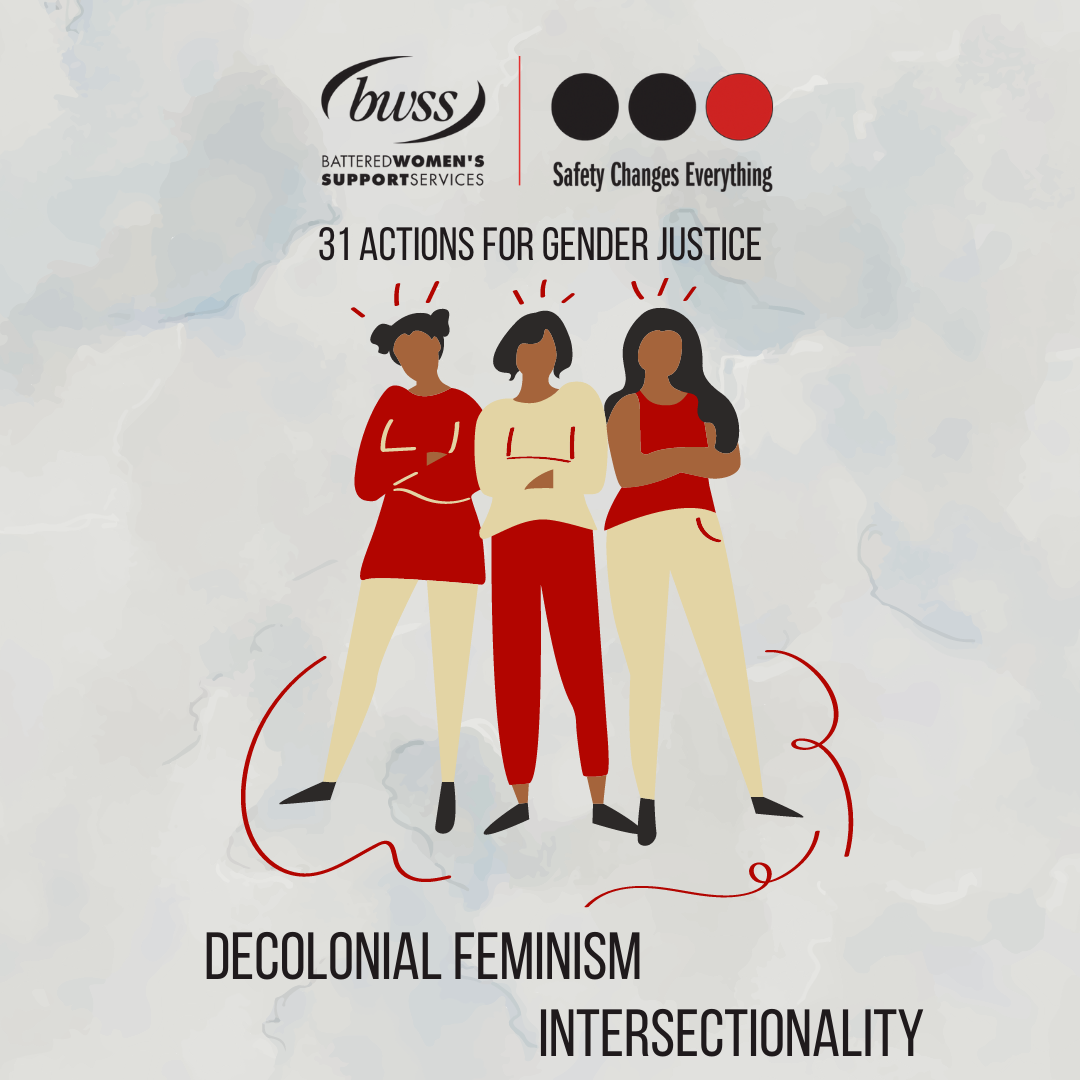We’ve created 31 Actions for Gender Justice to raise awareness, spark conversations and take action that transforms gender and power relations, and the structures, norms and values that underpin them. Every day for the month of March we will highlight an action that advances gender equity and justice for International Women’s Day (IWD).
Learn about BWSS approach: Decolonial Feminism & Intersectional
31 Actions for Gender Justice: Day 2
What is decolonial feminism?
Maria Lugones, Argentinian scholar, introduced the term in “Toward a Decolonial Feminism” (2010) in which she explains that gender is understood based on Eurocentric perspectives forced on people of colour through colonialism and capitalism.
She proposes to question and resist this colonial system by understanding how it continues to oppress women and by finding ways to fight this oppression.
Looking at the struggles of women through a decolonial lens allows us to consider intersectionality and understand the issues of all women –especially women of colour.
What is intersectionality?
The term was first coined by scholar and civil rights activist Kimberlé Crenshaw in her 1989 paper about the oppression of Black women, “Demarginalizing The Intersection Of Race And Sex: A Black Feminist Critique Of Antidiscrimination Doctrine, Feminist Theory And Antiracist Politics.”
Intersectionality refers to the unique forms of oppression and discrimination experienced by individuals or groups of people based on overlapping or intersecting social identities -race, sexuality, ethnicity, religion, age, gender, and other identifying factors.
An intersectional approach recognizes that there are different forms of oppression and discrimination within social identity categories. For example, Crenshaw explains that it’s important to look at the intersection of race and gender, not at race alone, to understand the oppression of black women.
Understanding decolonial feminism and intersectionality is crucial to advance gender justice.
Recognizing that different aspects of identity interconnect helps us better understand the issues and the needs of marginalized individuals and groups of people.
Thanks to our decolonial and intersectional approach, we fight to dismantle oppressive structures and acknowledge that not all women face the same challenges. Our approach allows us to understand and meet the needs of women who turn to BWSS for help.
How can you help?
Share your stories and/or amplifying the voices of women who share their experiences. Keep the conversation going by listening to women, learning about gender inequity, speaking up against gender bias, and promoting real change in attitudes.
Women’s voices are powerful.





